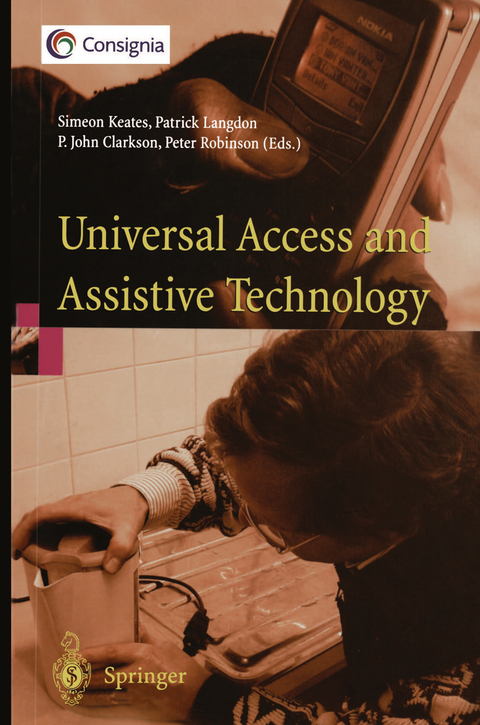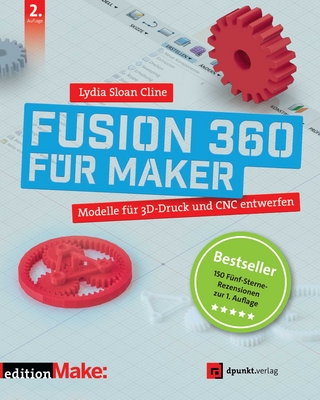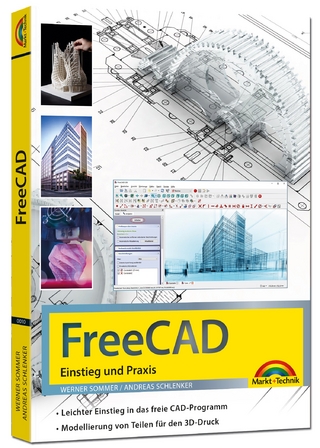
Universal Access and Assistive Technology
Springer London Ltd (Verlag)
978-1-4471-3721-4 (ISBN)
1. Commercial Perspectives on Universal Access and Assistive Technology.- 2. Defining Design Exclusion.- 3. Quantifying Design Exclusion.- 4. Countering Design Exclusion.- 5. Inclusive Design — Developing Theory Through Practice.- 6. A Systematic Basis for Developing Cognitive Assessment Methods for Assistive Technology.- 7. Control of Virtual Environments for People with Intellectual Disabilities.- 8. Why Are Eye Mice Unpopular? — A Detailed Comparison of Head and Eye Controlled Assistive Technology Pointing Devices.- 9. Cursor Characterisation and Haptic Interfaces for Motion-impaired Users.- 10. Web-based Multimodal Graphs for Visually Impaired People.- 11. Automatically Rearranging Structured Data for Customised Special-needs Presentations.- 12. Bridging the Education Divide.- 13. Contextual On-line Help: A Contribution to the Implementation of Universal Access.- 14. 3rd Age Interfaces: A Usability Evaluation of the ‘Your Guide’ Kiosk Prototype from an Older User’s Perspective.- 15. Virtual Environments for the Training of the Visually Impaired.- 16. User Involvement in the Design of a New Multimedia Communication Service.- 17. Issues Surrounding the User-centred Development of a New Interactive Memory Aid.- 18. Games Children with Autism Can Play With Robota, a Humanoid Robotic Doll.- 19. Progress of a Modular Prosthetic Arm.- 20. Development of a Novel Type Rehabilitation Robotic System KARES II.- 21. Improving the Flexibility of an Assistive Robot.- 22. Commercialising Assistive and Therapy Robotics.- 23. Improved Assistive Technology Prescription via Usage Log Analysis.- 24. Virtual Interface Development and Sensor-based Door Navigation for Nonholonomic Vehicles.- 25. An Ergonomic One-handed Wheelchair.- 26. Gathering User Needs in the Development ofthe POWER-HAND Opening Aid — A Successful Consumer Product for the Wider Market.- 27. Locomotion Assistance for the Blind.- 28. ‘Keep Taking the Medication’: Assistive Technology for Medication Regimes in Care Settings.- 29. “I can’t talk now” and Other Design Stories: Four Assistive Technologies for People With and Without Disabilities.- Index of Contributors.
| Zusatzinfo | XIV, 306 p. |
|---|---|
| Verlagsort | England |
| Sprache | englisch |
| Maße | 152 x 229 mm |
| Themenwelt | Kunst / Musik / Theater ► Design / Innenarchitektur / Mode |
| Informatik ► Grafik / Design ► Digitale Bildverarbeitung | |
| Informatik ► Software Entwicklung ► User Interfaces (HCI) | |
| Medizin / Pharmazie ► Physiotherapie / Ergotherapie ► Orthopädie | |
| Medizin / Pharmazie ► Physiotherapie / Ergotherapie ► Rehabilitation | |
| Technik ► Elektrotechnik / Energietechnik | |
| Technik ► Medizintechnik | |
| Schlagworte | Assistive Technology • Human-Computer interaction • inclusive design • rehabilitation robotics • Universal Access |
| ISBN-10 | 1-4471-3721-3 / 1447137213 |
| ISBN-13 | 978-1-4471-3721-4 / 9781447137214 |
| Zustand | Neuware |
| Informationen gemäß Produktsicherheitsverordnung (GPSR) | |
| Haben Sie eine Frage zum Produkt? |
aus dem Bereich


